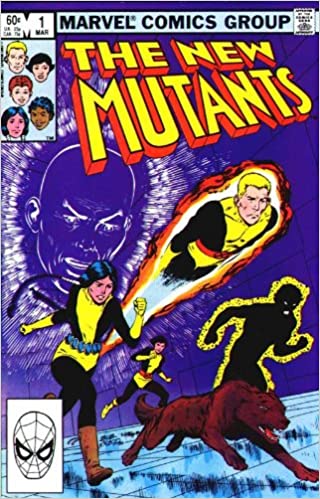
What is it: “What’s it all about, Alfie?” A time capsule of swinging ‘60s London, it’s the movie that made Michael Caine a superstar and broke many longstanding movie taboos in its frank depiction of a bed-hopping Lothario and the damage he leaves in his wake. Caine’s Alfie is an unapologetic cad juggling multiple women with a casual sexism that’s pretty savage more than 50 years later, yet despite his character’s nastiness Caine also charms – it’s the birth of one of the cinema’s greatest stars.
Why I never saw it: First things first – I’ve always liked Sir Michael Caine, who brings authority and intelligence to pretty much everything he does, even A Muppet Christmas Carol. However, my exposure to him began with middle-aged Caine – the first movie I remember seeing him in was Blame It On Rio (1984), nominally a very ‘80s teen sex comedy about a man having a mid-life crisis affair with his best friend’s daughter. It’s highly creepy stuff in hindsight, yet what sticks out (besides the plentiful nudity that first caught teenage me’s eye) is Caine’s nuanced, frazzled performance, far better than the movie itself merits. I later grew to dig Caine in such ‘80s flicks as his hilarious turn in Dirty Rotten Scoundrels and particularly his Oscar-winning role in Woody Allen’s Hannah and Her Sisters. Yet it’s taken me years to really dig into the great run of 1960s/70s movies that made Caine’s career – the astonishingly gritty Get Carter, the classic heist flick The Italian Job, the marvellously intricate duel of wits that is Sleuth. And there’s 1966’s Alfie, his first enormous hit, which in some ways feels as ancient as Victorian times to today, but still has plenty of bite.

Does it measure up to its rep? Alfie is a product of its time – post-war London, men who don’t bother with birth control, country clinics for tuberculosis patients and women who come second to men in almost every arena. It’s got a bit of a reputation as a light-hearted swingers’ comedy romp, but it’s really more of a drama – like Saturday Night Fever, another movie that is far darker and more cynical than its frothy reputation. Alfie dumps women at a moment’s notice, refers to them as “it”, and fathers two children that we know of with little consideration for his lovers. Frequently breaking the fourth wall to laddishly address the audience, Alfie at first seems a charming jerk, but we soon see the damage he leaves behind. The emotional heart of the movie is a harrowing abortion sequence involving the wife of one of Alfie’s friends (a terrific Oscar-nominated performance by Vivien Merchant). What makes Alfie linger is Caine’s performance, which balances swaggering arrogance and snarky wit with just the faintest glimmers of self-analysis. He’s a confident Cockney bastard, and you often hate him, but Caine gives him more depth than say, Robert Redford or Peter O’Toole might have. There’s something a bit reptilian about Alfie, a sense that something is always held back. Alfie gets his comeuppance, in a way, but you’re still left with the impression he hasn’t really changed enough, or paid for the pain he dealt out. By 2020 standards, the world of Alfie is a time capsule, but there’s still a lot of Alfies out there today breaking hearts on Tinder and treating women with the same casual disdain Alfie did half a century ago.

Worth seeing? Absolutely. Go in expecting a reflection of the world of 1966 which is pretty rough’n’tumble compared to today’s expectations of relationships, but underneath it all, a lot of how men and women interact today is still as cruel and callous as Alfie himself. It’s also the birth of a charismatic, unforgettable movie star, whose long career has always married Cockney confidence and charm with a hint of something darker, self-contained and possibly unknowable.



















